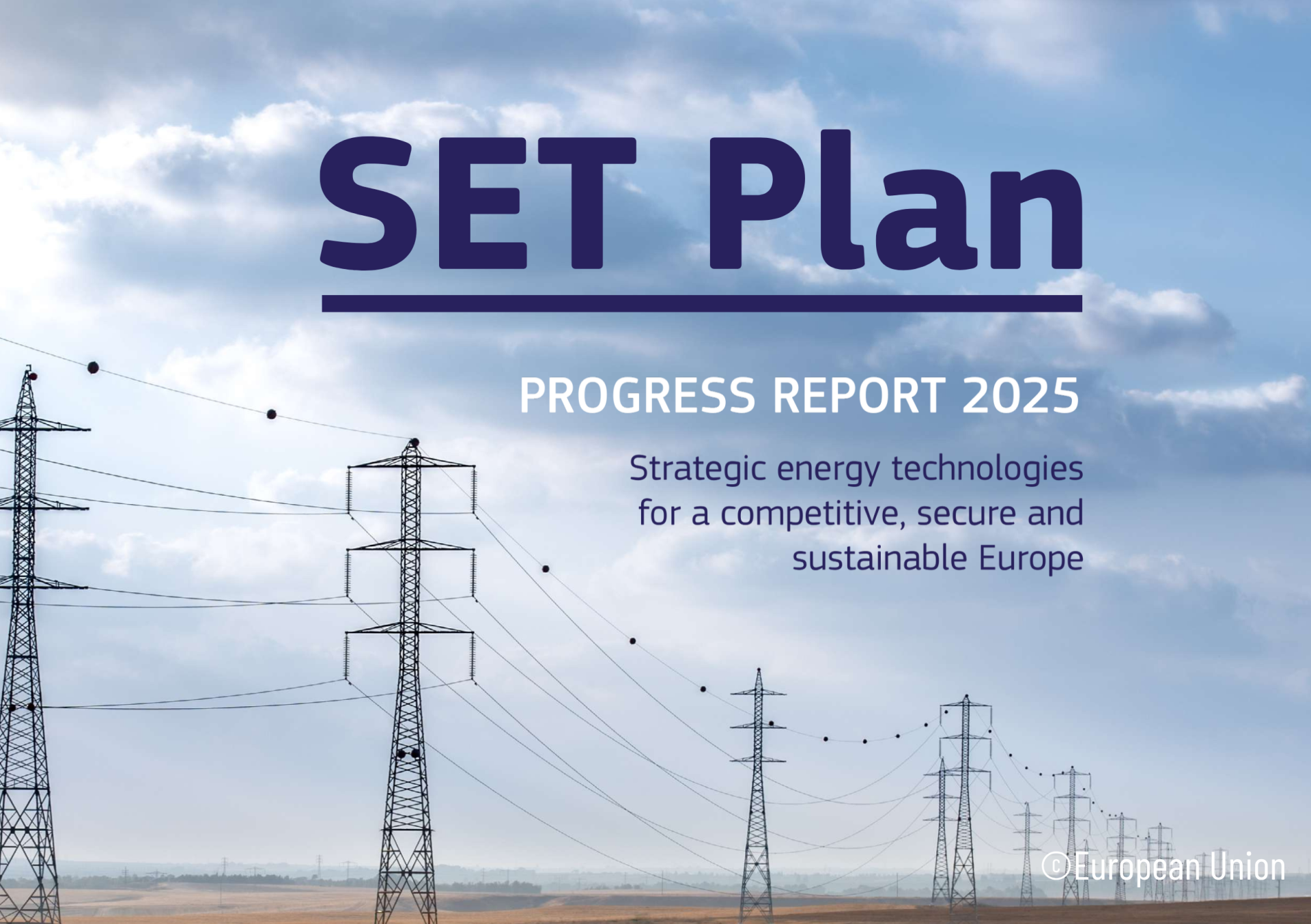
On 31 October, the European Commission’s Joint Research Centre (JRC) released the annual Strategic Energy Technology (SET) Plan Progress Report for 2025, which highlights the initiative’s role in bringing together participating countries, along with industry and research organisations, to coordinate priorities and accelerate the development and deployment of innovative clean energy technologies across Europe. The report, which was also presented at the SET Plan Conference held in Odense, Denmark, on 4–5 November, provides a detailed update on EU investment in clean energy research and innovation (R&I), revisions to Implementation Plans—roadmaps for each technology area outlining priorities, timelines and investment needs—ongoing collaborations, and new initiatives.
Among the report’s key successes, it highlights the strengthened status of the SET Plan following its recognition in the Net-Zero Industry Act (NZIA), a binding EU regulation designed to support domestic manufacturing of net-zero technologies. The NZIA also formally elevates the SET Plan Steering Group, which consists of high-level representatives from Research and/or Energy Ministries of EU Member States, as well as delegates from EEA countries invited as observers.
Progress was reported on governance reform: Member States were invited to join the new High-Level Steering Group, and the process of updating the SET Plan governance structure was launched. The new structure notably introduces Common Implementation and Investment Plans (CIIPs), conceived as unified roadmaps for clean energy technology development, encompassing a shared vision, a Strategic Research and Innovation Agenda (SRIA), and concrete implementation commitments.
EERA’s contribution is explicitly recognised in the report, with its role described as key in advancing a coordinated low-carbon R&I agenda and supporting the coordination of joint initiatives to tackle major clean energy transition challenges. Beyond this, EERA is now also part of the renewed SET Plan governance structure and contributes directly to the implementation of all Implementation Plans. During 2024–2025, Task Forces on cross-cutting topics — including circularity, digitalisation, skills, social sciences and humanities (SSH), and market uptake — were established and presented preliminary recommendations to integrate these principles across SET Plan areas. The report further notes that the Implementation Working Groups on Energy Systems, Direct Current Technologies, and Energy Efficiency in Buildings have updated their plans, while five others remain under revision. Collaboration between Working Groups intensified this year, with the most active clusters centred on Energy Systems and Sustainable and Efficient Energy Use in Industry.
Overall, the publication highlights progress in renewable energy technologies, grid digitalisation, energy storage, energy efficiency, and industrial decarbonisation. In a context of growing global uncertainty, the JRC emphasises the need to accelerate innovation further, strengthen partnerships with industry, and scale up solutions more rapidly to enhance the EU’s strategic autonomy and resilience, recognising EERA as a key contributor in advancing coordinated low-carbon R&I across Europe.